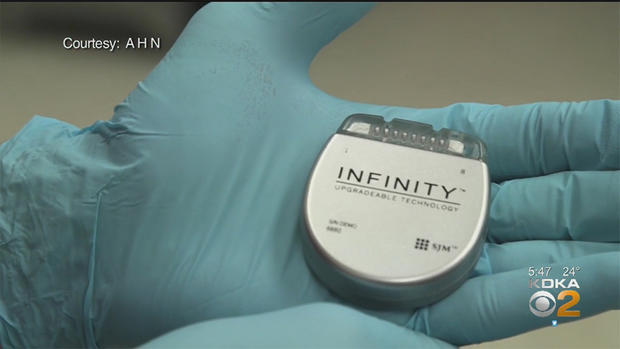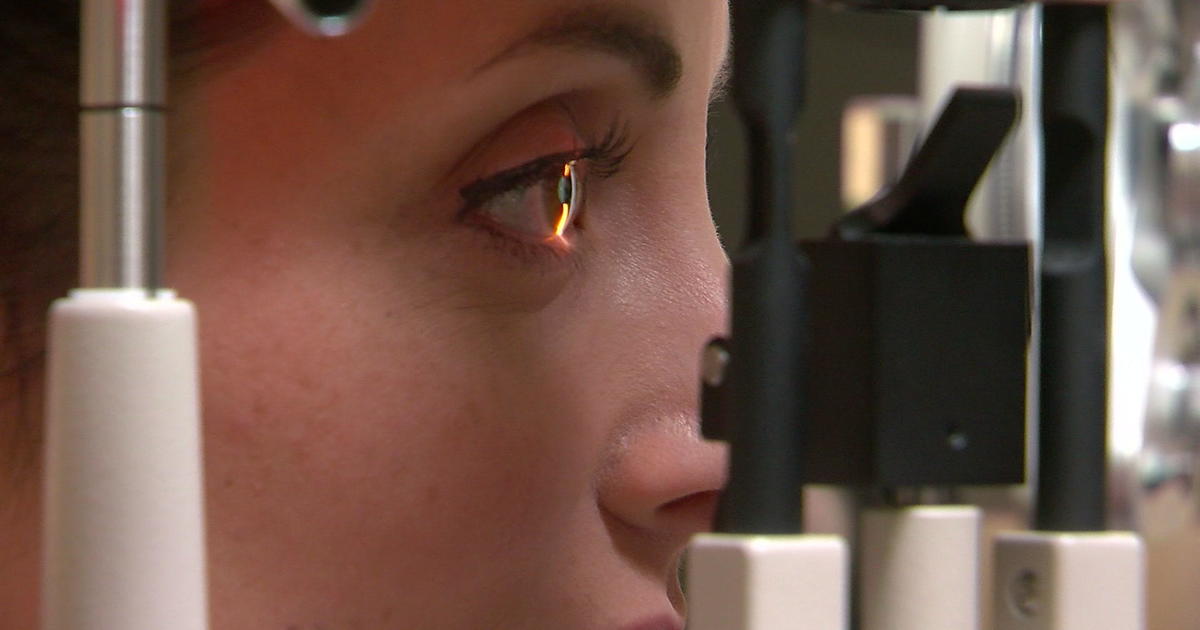Old Treatment For Parkinson's Disease Now Being Used For Epilepsy
PITTSBURGH (KDKA) -- An old treatment for Parkinson's disease is now giving epileptics a new option.
Crystal Niederriter started having seizures at age 12.
"I've had people tell me I make like a weird noise beforehand," she says.
She then falls and shakes, all unbeknownst to her. The episodes are unpredictable.
"At one point, we had them like every three days. One day, I had three in an hour and a half. The longest I've ever gone was six months," Niederriter said.
They can be dangerous.
"It could be just in my bed, nice, safe, or it could be walking down the street, and chipping all your teeth," Niederriter said.
She's tried medication.
"So in total, I was probably on four different medications throughout this time, but nothing really stuck and nothing really worked," she said.
Doctors said adding more medication probably wasn't going to help, so she asked about surgery. A number of implants are available, but Niederriter decided to go with a relative newcomer for epilepsy -- deep brain stimulation.
"The deep brain stimulators for epilepsy were just FDA approved a little over a year ago," says Dr. Philip Lee, a neurosurgeon at the Allegheny Health Network.
However, the technique has been used for Parkinson's disease for a few decades now, which is what appealed to Niederriter.
"The only downside is it's brand new for epileptics," she said.
So there are some unknowns, but: "It's exciting to be able to offer people another option."
Seizures happen when brain cells fire abnormally all at once. The stimulator electrodes go into a structure deep in the brain called the thalamus, a big relay station for brain cells. The thought is electrical impulses here will disrupt the seizure network.
"It's a pretty complicated process," says Dr. Lee.
It takes three surgeries under general anesthesia -- one to mark where the electrodes will go, another to get the stimulator in place, and a third to put in the wiring and generator. The device then delivers constant stimulation, but patients barely notice.
"Honestly, they don't notice a lot," Dr. Lee admits, "They don't feel the stimulator when it's on."
The device is available only at select centers. Doctors check scans during the operations to make sure everything is in the right place. After that, it's wait and see.
"Six months is probably a reasonable amount of time to see if there's a difference in terms of their seizure frequency," Dr. Lee says. "It will decrease seizure frequency for most patients, but not for everybody."
Regardless if a patient has fewer seizures with the stimulator, it does not eliminate the need for medication.
"The likelihood of being seizure free with a stimulator alone is pretty small," Dr. Lee says.
Eventually, the batteries will have to be changed. But overall, doctors say any risks to getting a stimulator are minimal.
Crystal now has all the hardware in place.
"Because I don't have one specific area where I have seizures, we put it in the center of my brain," she said.
"There were holes in your head. I didn't feel really pain from the device or anything. A little sore from the stitches, but for the most part, I didn't feel a whole lot of pain throughout the process."
She's healing nicely and at her next appointment, her doctor will program the stimulator.
She hopes she can get enough relief from the seizures to be able to drive and work. She had been studying at Slippery Rock to become an interpreter for the deaf, but she put that on hold until she sees if this treatment works for her.
"If they know that I have seizures, they're not going to want you to sit there and be the interpreter knowing that there's the risk of you not being able to follow through with your job. I'm hoping that it can like help me gain more independence, like being able to not have to choose where I'm going to live based on a transit system."
And, most importantly, she hopes the device changes her life.




